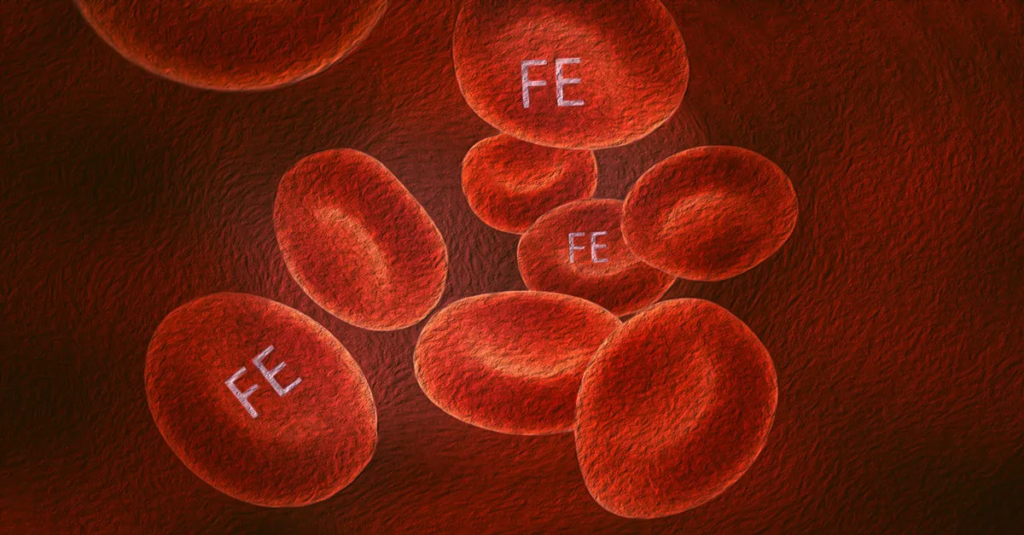Do you know the need for iron in women and looking for supplements?
Iron is essential to life for both men and women; it helps reduce tiredness and fatigue
Iron is essential to life for both men and women; it helps reduce tiredness and fatigue, as well as plays an important role in normal energy metabolism, oxygen transport, cognitive function, immune function, and formation of red blood cells. However, iron is especially important to women – particularly those of reproductive age – as women need up to twice as much daily iron as men.

Why do women need iron capsules?
Menstruation is the most common cause of iron loss worldwide. On average, women lose around 220 to 250 milligrams of iron per pint of blood during each menstrual cycle (the total loss of blood can be up to half a pint). As such, it is particularly important for women of childbearing age to meet their daily iron intake However, this may be difficult to achieve through diet alone
Pregnancy also impacts the overall iron content in a woman’s body. As a woman’s blood volume increases when she’s expecting, dietary iron requirements can also rise especially in the second and third trimesters. This is because the body uses iron to make hemoglobin to transport oxygen to other cells; if a woman doesn’t get enough iron, the body may find it difficult to produce the correct amount of red blood cells it needs to make this additional blood. Women who experience morning sickness or who are carrying more than one child may need more iron than they can ingest from diet alone.
How do vegan iron supplements help us?
Although food supplements cannot replace a diversified diet and a healthy lifestyle, if you can’t envision giving up your morning coffee but still want to maintain a healthy iron level, incorporating an iron supplement like Active Iron into your life may help. Because Active Iron targets the natural site of absorption and delivers just the right amount of iron when you need it, it may benefit women who need to supplement their iron intake but are concerned about the negative side effects of traditional products. Active Iron can be taken on an empty stomach and doubles the amount of iron absorbed when compared to Iron sulfate.

What is iron?
Iron is one of your body’s most vital minerals. While iron is present in all human cells, it is mostly found in red blood cells (RBCs). Iron is required for the production of hemoglobin, which aids in the transport of oxygen throughout the body via red blood cells (RBCs).
Iron supplements are essential in the treatment of anemia (low amounts of healthy red blood cells), especially iron deficiency anemia (IDA). The majority of people acquire all of their iron through their meals. However, certain people are more susceptible to iron deficiency. The most prevalent cause of anemia is iron deficiency, which affects 5% of women and 2% of men.
What is anemia?
Iron supplementation is helpful for anemia caused by iron deficiency. There are several different causes of anemia, but iron deficiency is the most common. Anemia results when iron deficiency progresses to the point that hemoglobin (a protein in red blood cells) levels drop to below normal levels.
Iron deficiency can lead to arrhythmias, heart murmur, enlarged heart, and heart failure if left untreated. Iron deficiency may also be associated with an increased risk of fibromyalgia.
Iron supplementation can improve iron levels and treat IDA. Daily iron supplementation has been shown to reduce the prevalence of anemia and low iron status in menstruating individuals. Iron deficiency is the most common nutrient deficiency. Left untreated, it can lead to numerous health issues. If you suspect you may be deficient, discuss it with your healthcare provider so that a deficiency can be appropriately confirmed and treated.
What causes iron deficiency?
Iron deficiency results from either excessive losses of iron or too little iron in the diet.
Losses may occur through blood loss, reduced absorption, or prolonged exercise (e.g., athletes who compete in marathon running or cycling endurance events). For example, people who menstruate are at a greater risk of iron deficiency and IDA due to blood loss. And iron deficiency is often more prevalent during pregnancy due to the increased demands of a growing fetus.
People with conditions affecting the gastrointestinal (GI) tract or a history of surgeries on the GI tract are at risk of IDA. For example, those with Crohn’s disease or who had a gastric bypass (a type of weight-loss surgery) for obesity may be more likely to be iron deficient. This is because they may not be able to absorb adequate amounts of iron. Iron is absorbed in the duodenum and proximal jejunum (the first part of the small intestine that digested food travels through). Also, stomach surgeries may reduce the production of acid in the stomach which is needed for iron absorption.

